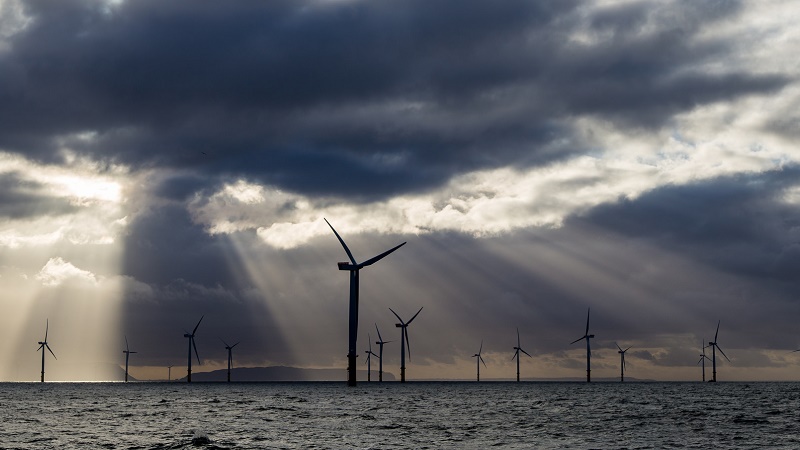The UK government sought to calm green investor nerves on Thursday by backing independent advice on its carbon-cutting pathway.
Parliament is set to approve a 57% emissions reduction from 1990 levels by 2032; one of the most ambitious targets in the world.
With the country plunged into confusion over its future relationship with the EU, it signals a continued commitment to the low carbon economy.
“Investors have been shaken by the Brexit vote, so a vote of confidence like this is absolutely vital at this time,” said Conservative lawmaker Graham Stuart.
“The low carbon sector has grown strongly under David Cameron’s premiership, becoming an important part of the overall economy and, whatever shape leaving the EU takes, we need to ensure that this growth continues.”
Weekly briefing: Sign up for your essential climate politics update
Yet the Committee on Climate Change, which recommended the carbon budget, warned in its annual report existing policies were insufficient to get there.
“Leaving the EU will require the reassessment of some existing and proposed policies but does not change the need for the UK to play its role in reducing emissions,” said committee chair Lord Deben.
“New commitments will be required to meet our targets and realise the opportunities from emissions reduction.”
Emissions have fallen on average 4.5% annually over the past three years, almost exclusively driven by a cleaner power generation mix.
Progress in other sectors has stalled, the Committee said, calling for policies to address buildings, transport and carbon capture and storage.
Reviving Hercules: Can carbon capture give British industry a future?
These are “glaring holes” in government strategy, said Joanna Haigh, professor at London’s Grantham Institute.
“Whoever the next prime minister is, he or she knows where holes need to be plugged – and the quicker they are plugged, the sooner the UK will get back on track to meet the demands of science and the international agreement.”
Government was due to set out new climate policies in December, but it is not clear whether the next administration will stick to the timetable.
Shadow energy secretary Barry Gardiner called for it to be brought forward. “The government must now publish a credible plan to reassure investors, plug capacity gaps and keep bills down,” he said.
It comes as the Conservative Party fires the starting gun on a leadership race to replace Cameron.
Boris Johnson, the former London mayor notorious for courting climate sceptic views, was the presumptive favourite. He was one of the most prominent advocates for leaving the EU.
But he withdrew at the last minute, after erstwhile ally Michael Gove poached Johnson’s supporters to make his own bid. As education secretary, Gove tried to remove climate change from the national curriculum.
His main rival is Theresa May, home secretary and Remain supporter. Seen as competent, her platform focused on social reform. She has said little about climate change.
Energy minister Andrea Leadsom, a Brexit supporter who on Wednesday affirmed her commitment to the Climate Change Act, also threw her hat into the ring.
